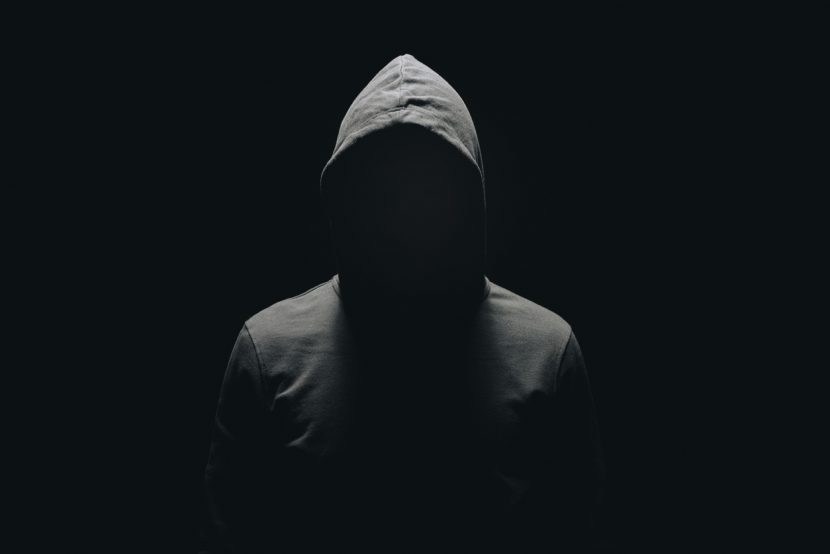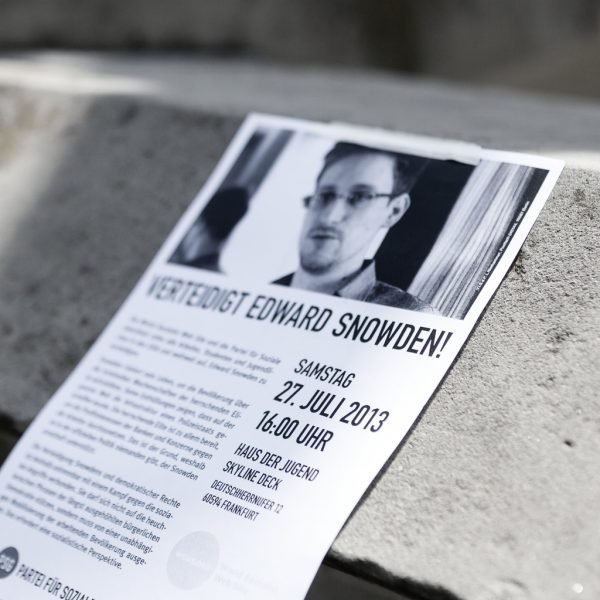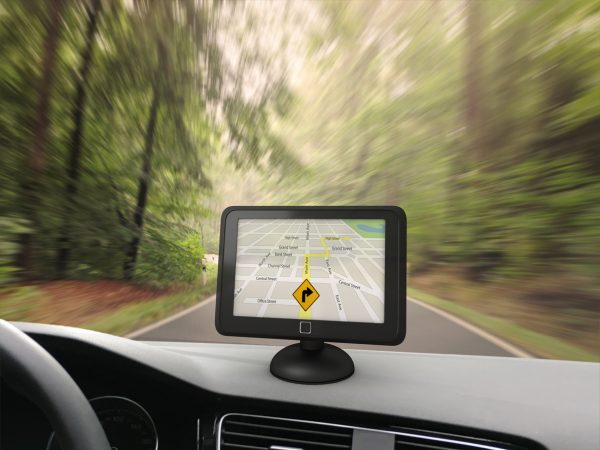How To Disappear From The Authorities and Vanish Without A Trace Part I – Your Phone

When George Orwell wrote his dystopian novel “1984,” he envisioned a world when an overbearing government spied on its citizens, controlling every aspect of their lives. Little did he know that his predictions would come true, and even less so that it would be the United States government which would lead the way to worldwide spying on ordinary citizens. Yet, as Edward Snowden revealed, the NSA (National Security Agency) is actively spying on every bit of electronic communications, around the globe.
This is actually nothing new, as the programs which are being used for this spying date back as far as the 1960s. Yet technology has changed much since then and the NSA has had to work hard to keep ahead of the curve. In the last few years, they have succeeded in tapping into the last few hidden shreds of electronic communications, allowing them to know everything about you and I.
Snowden made this extremely clear, when he left the NSA as a whistleblower. Amongst his revelations was how NSA employees talked about ordinary citizens and their private lives; using people’s supposedly private communications for their own entertainment and spying on anyone they found interesting. One of the main tools they use for this is the cell phone.

Today’s smart phones are a miracle of communications, providing a portable nexus for every type of communications we normally use. Our smart phones allow us to call, text through a variety of platforms, check our e-mail, operate our desktop computers remotely, search online, and if we don’t like the phone company’s voice and video communications, we can use our phone to connect to VOIP services which allow that too.
There’s just one problem with this miracle of modern communications. That is, our communications aren’t totally secure. There are many ways that others can find out what we are saying and who we are saying it to. Not only that, but our phones can and are used to track us as well.
One important legality we need to realize and understand is that our electronics are largely exempt from the Fourth Amendment prohibition against unreasonable search and seizure. At the time the Constitution was written, modern communications didn’t exist. So it wasn’t included; and it seems that Congress has been a little slow on the uptake in protecting our privacy. Until they pass laws, limiting the ability of law enforcement, other government agencies, and even major corporations from using the data on our phones and other electronic devices, we can be sure they will use it.
GPS
All cell phones today come with GPS enabled, allowing you to know where you are at any point in time. But don’t think that’s a benign; because it’s not. If you don’t believe me, just go to Google Maps and check your timeline. You can find that hiding under the hamburger menu. It will tell you everywhere you’ve been, including date and time, as far back as you’ve had a GPS enabled cell phone.
Have you ever received a notification just after leaving a restaurant or store, asking you to rate your experience there? That’s part of Google Maps, as well as a few other programs. They know that, because they are tracking your location; and you can be sure that they’re not doing that for your personal benefit.

Social media does this as well, although it almost doesn’t need to. With the amount of people out there who are “checking in” when they go to stores, coffee shops and restaurants, it’s easy to follow anyone, just by following their social media feed.
Don’t think you are exempt from this sort of tracking if you have an iPhone. Apple does the same thing. There isn’t a phone platform around which doesn’t track you on a regular basis. While this information is supposedly limited only to your use, does anyone believe that the government can’t get their sticky fingers on it?
Tracking via Cell Tower
Even without GPS, call phones can easily be tracked to the nearest cell tower, as they must check in with the cell tower as you move from one cell to another. So, while you might not be giving away your exact location, down to the nearest meter, if your GPS is turned off, they can still find out about where you are. If you are traveling, you won’t be able to hide it.
Phone Tracking Services
We’ve all seen those online services that allow parents to keep track of their children and spouses to check up on their suspected cheating partner or teens who are doing things they shouldn’t be. These services allow you just about complete access into someone else’s phone; including such things as their pictures, their text message history, their call log and of course, everywhere they’ve been.
While there are some limitations on who you can sign up for this service for, the government doesn’t operate under the same restrictions. If these companies can get into your cell phone to find out about you, it’s safe to say that the NSA can do as much, if not more.
Search History
If you use your phone for anything on the internet, but especially for searching products, you can be sure that others are tracking you. Data mining has become big business, and there are countless companies out there who are involved in it. Some of the biggest retailers today are tracking every product and service you look at online, so that they can try to sell you similar products.

Have you ever searched for some product online, then had the same product show up in your Facebook feed? It happens all the time. That’s because Facebook is one of the biggest data mining companies out there. They only offer you their social media platform for free, so that you’ll add information to their database, which they can then sell to others; mostly advertisers.
In today’s internet world, one of the customers for all of the major social media and search engine companies is the US government. All of these companies have agreements with the FBI, the CIA and the NSA, allowing them to share data with our country’s intelligence agencies.
What Can You Do?
As long as you have a smartphone that is registered in your name, the government and others can track you and listen in on your communications. Both Android and iPhone’s IOS allow for shutting off the GPS function, which can keep them from tracking your location, assuming that there isn’t some secret override that you and I aren’t aware of. But that’s about the best you can expect to do, as long as you have a smart phone.
Even so, there is one thing that you can do, which will help you to “go dark” and keep the government or anyone else from tracking you via your cell phone; that’s to get rid of your phone. If you pull the battery out of your phone (for those where that is still possible) or leave your phone at home, they can’t tell what you’re doing.
Of course, that means you don’t have communications. But there’s a solution to that as well. That is, all you need to do is buy a burner phone and use it. By burner phone, I’m referring to a simple prepaid phone, along the lines of the old flip phones. You want to get the simplest one you can, without any extra communications functions.
The advantage of these phones is that you can activate them, without giving your contact information. So, even if they can hear your calls and record your text messages, they don’t know it is you, as long as you don’t give that information away.
That’s the key; not letting out any information that tells people you’ve made a switch. Never use your real name over the phone. Don’t text your friends and tell them your new number. Don’t send out any notification from your old phone, which might make any reference to your new one. Do everything you can, to keep your identity on the burner phone a secret.
There’s always a risk that someone else will blow your cover, calling you by name or by a nickname (or code name) which was used on your old phone. The way to keep that from causing problems is to change your burner phone regularly. Then, even if they do figure out who you are, that information will only be good for a short period of time. Once you switch phones again, whoever is trying to track you will have to start all over.
Starting over means working from a voiceprint. That’s a tedious process, which is only used to confirm, when they already have a pretty good idea it’s you. Using a voiceprint to search for someone is something that’s only done in the movies.
Burner Smart Phones
There are also burner smart phones that you can buy, which will give you the full gambit of communications flexibility that any other smart phone offers. But there’s one big problem with that, if the government is truly tracking you, the moment you log into one of your e-mail accounts, any of the Google sites, or some other communications account, the government will know your new number.
The only way you can use a burner smart phone effectively is to create new accounts for everything and never use any of your old accounts on it. That means that every time you switch burner phones, you also have to recreate all of those accounts. Unless you really need them for some reason and need to hide them from the government, that’s a lot of extra work to put yourself through.
